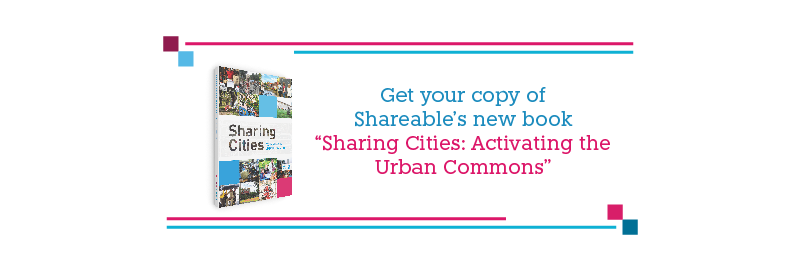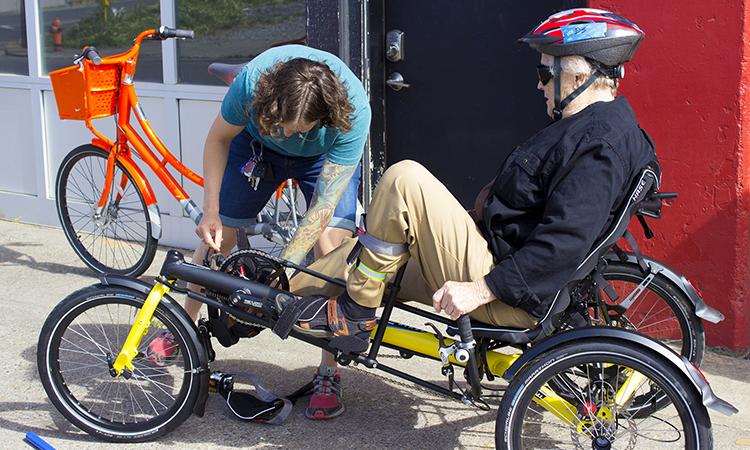This article was adapted from our latest book, "Sharing Cities: Activating the Urban Commons." Download your free pdf copy today.
Biking has become a way of life in Portland and many other cities around the world. Riders enjoy reduced transit costs, health benefits, and social opportunities. In most cities, however, these benefits are only accessible for those who can ride traditional bikes, or the physically disabled who can afford special bikes. In Portland, riders lobbied the city government to think about disabled riders in designing a bike-sharing system.
The city will eventually offer adaptive bikes for the physically disabled as part of the 1,000-bike and 100-station bike sharing system that launched in July 2016. The city first conducted a series of interviews with disabled riders to understand their needs. They found that, in addition to needing a variety of adaptive bikes, disabled riders often required storage options for wheelchairs and assistance at bike share stations. Adaptive bikes are designed to fit the needs of individual riders. Some are designed with three wheels to accommodate riders who have trouble balancing. Others are heavy duty to accommodate larger riders or offer hand pedals for riders with limited or no lower body mobility. During the interviews, officials discovered that disabled riders were looking to ride for exercise and recreation, so it is crucial to offer more adaptive bikes and services near trails, rather than at commuter bike stations.
This year, we’ve seen Mutual Aid in Motion.
From scaling sharing hubs to Mutual Aid 101 trainings, we’re helping communities build the tools they need.
Every dollar fuels lasting resilience – proving that when we move together, we all move forward.
The adaptive bike program was scheduled to roll out in June, 2017. The city is holding or has held educational events, such as the adaptive bike clinic, and providing scholarships for biking classes, to ensure more people can enjoy the benefits of the forthcoming bike-sharing facilities.
Learn more from:
Header image by the Portland Bureau of Transportation on Flickr (CC BY-NC-ND 2.0)

